SFiO is an international network of solution-focused practitioners which promotes, supports and develops research and applications of Solution Focus in Organisations.
This website accompanies you in your discovery of SF by offering you an overview of SF events worldwide, access to the SF Clues, to the InterAction Collection, and much more. Enjoy staying curious.

Inspired by stories of people getting together silently to read, write and think while learning, Anton Stellamans (Belgium) and Jonas Wells (Sweden) are offering spaces for engaging with the most important resource available to us – you and your resources.

Join us at Land aan Zee, NL from Oct 14 to Oct 18 for a relaxed, creative gathering where experienced Solution Focus practitioners in organisations spark fresh insights and evolve the approach. It’s a space for original thinking and exploring “big ideas,” for asking unusual and even provocative questions, and for taking time to let new possibilities emerge — all in a beautiful and inspiring setting that invites reflection and renewal.
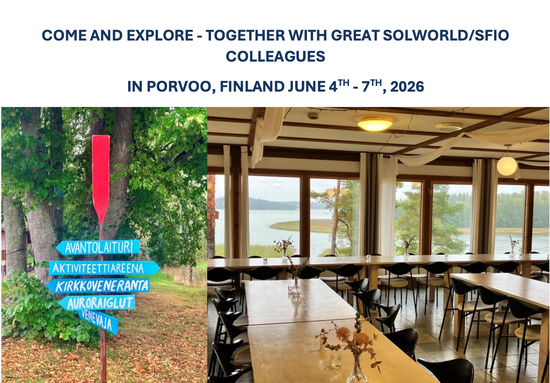
This is an unconference for you if you use SF as a method for training or other topics like leadership, organisational development, networks and ecosystems. This Unconference format allows all the participants to share their experiences, tools and questions about training SF and using SF as training and organisational development practice. The programme will be shaped by the themes participants wish to explore with their peers. Bring your own ideas and questions!
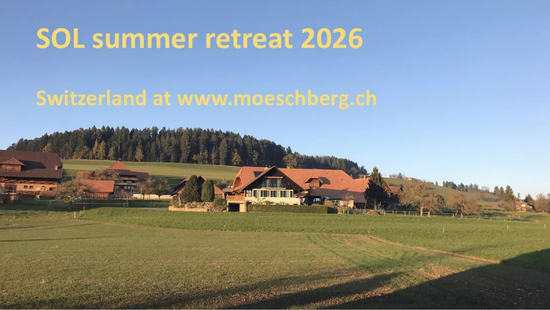
You are warmly invited to the next SOLworld Summer Retreat in Switzerland, taking place from August 10–15, 2026. If you’re looking for a mix of learning, sharing, and true relaxation with fellow Solution Focused practitioners, this retreat could be just right for you.
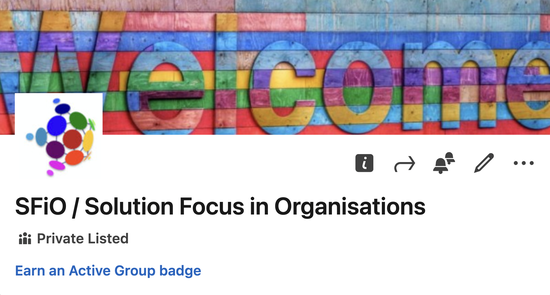
We are group of international Solution-Focused Practitioners who are learning how to effectively apply SF in organisations. The practice of Solution Focus (co-founded by Steve de Shazer and Insoo Kim Berg) continues to grow internationally as does the number of people using the approach in coaching and in organisations. We look forward to discovering how it works best with you.
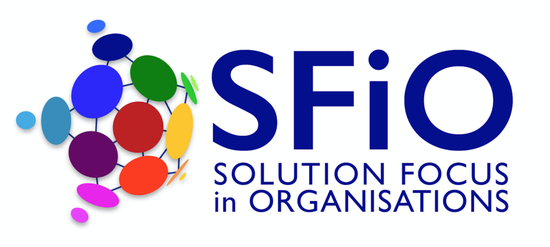
De Chapter of the Lowlands verenigt alle Nederlandstalige SFiO Contributors. We komen 2 keer per jaar samen, om beurten in Vlaanderen en Nederland. Er is ruimte voor netwerking, intervisie én we laten ons stimuleren door een interessante spreker. We wisselen af tussen een theoretische bijdrage, een praktische toepassing van SF en inspiratie uit een ander domein.

欢迎参加“组织中的焦点解决(SFiO)”中国社群的活动!走出心理咨询和治疗室之外,焦点解决还可以在普通人的工作、生活各方面发挥作用,培育并滋养个体、团队、企事业单位及各类组织、社区乃至整个社会的健康运行、和谐与美好。焦点解决与东方智慧有着天然的联结。我们希望在这里汇聚全中国的焦点解决实践者,彼此交流、共同分享、相互支持、互相赋能。我们希望SFiO中国社群:1)成为连结东西方焦点解决实践交流的桥梁;2)搭建在在中国本土组织中实践SF的有用资源库;3)从理论、技术、人才等各方面支持实践者在组织中应用SF的尝试;4)凝聚实践者,彼此支持与赋能,大道不孤,天下一家。
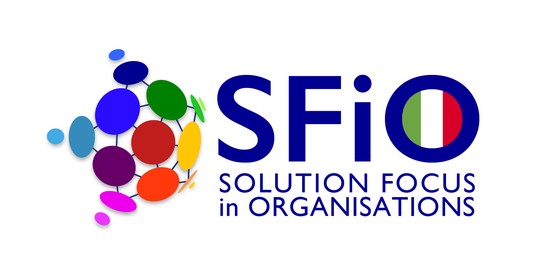
l “chapter” italiano della SFIO nasce con l’intento di condividere e divulgare l’Approccio focalizzato alle soluzioni nelle organizzazioni. Durante gli incontri che organizziamo diamo spazio a scambio di pratiche, intervisione, contaminazioni da altri approcci, condivisione di articoli e libri, networking.
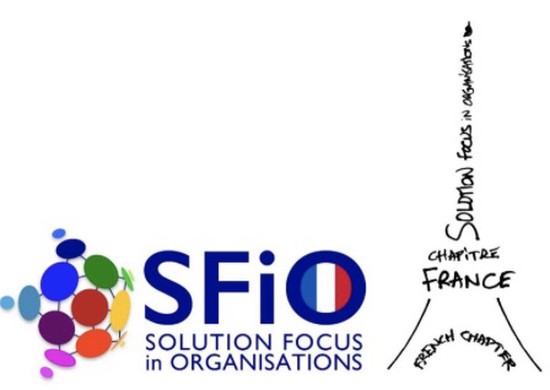
Les réunions par le Chapiter français SFiO sont destinées à l’échange de pratiques, à l’intervision, au partage d’articles et de livres, au réseautage. La structure et le déroulement de ces réunions incarnent elles-mêmes les principes Solution Focus.
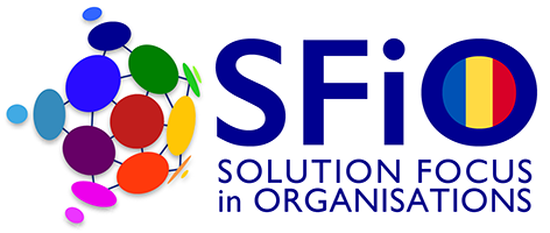
Ideea de a pune bazele unui chapter Solution Focus in Organizations a apărut în cadrul conferinței SOL World CEE 2018. Ca și organizatori ai acestei conferințe și ca și practicieni solution focus, ne-a plăcut mult să lucrăm împreună și am dorit să continuăm să o facem, să ne dezvoltăm și să oferim valoare comunității.
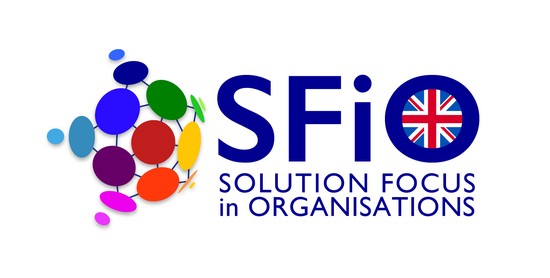
The UK SFiO Chapter holds three meetings each year in London and/or in Leeds. We currently focus our meetings around a workshop of around 1.5 to 2 hours in length with some great speakers.
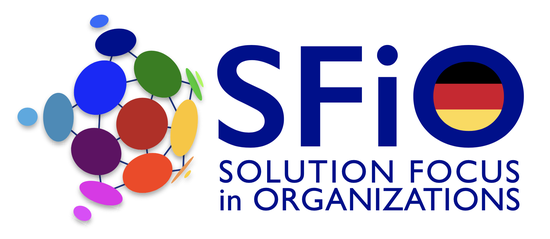
Herzlich Willkommen bei der deutschsprachigen Sektion (Chapter) von SFiO. Seit 2011 bieten wir einen Raum für persönliche Begegnungen und den Erfahrungsaustausch auf Deutsch.
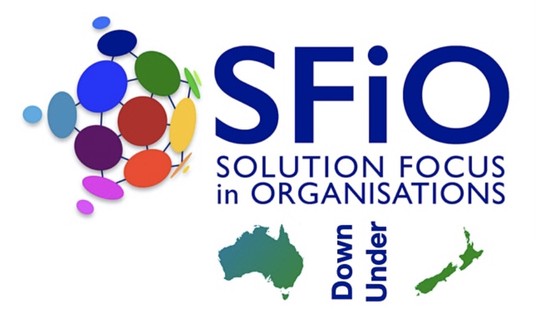
The SFiO Downunder Chapter was launched in 2020 and offers great opportunities to connect to SF practioners in Australia and New Zealand!
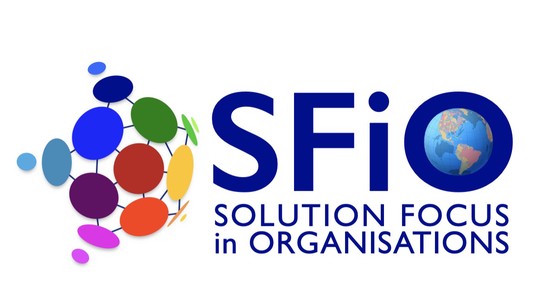
The Global Online Chapters are a great occasion to connect to SF practioners from all around the world. We host 1-2 online zoom meetings every month, featuring case studies, applications and the now traditional online Fika (coffee break).
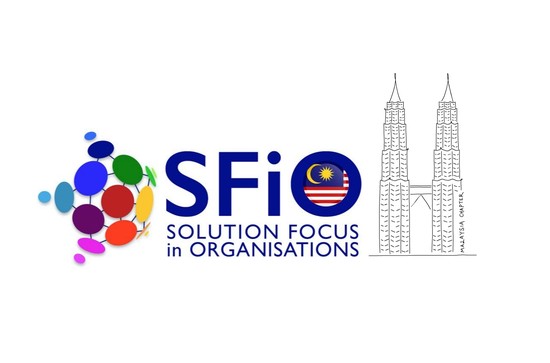
To all SF Practitioners in Malaysia and Asia: Welcome to SFiO Malaysia. Here is where we share and engage with others to create new possibilities as we learn together.
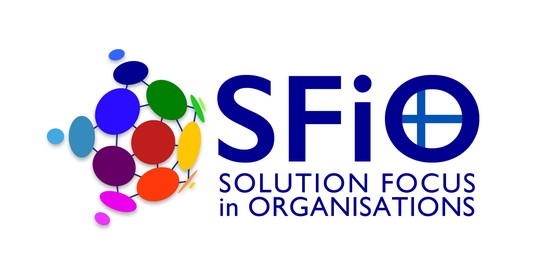
Welcome aboard to our group of solution focused organisation developers. In SFiO Suomi Finland we have live meetings few times a year and a active Facebook group. Connect, share and learn together.